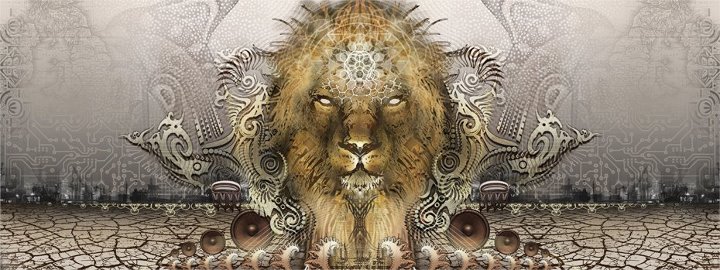The downfall of Darwanism and Freud – towards a new psychology
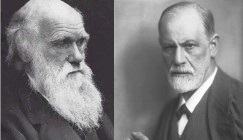 “Now: The beliefs of [Charles] Darwin and of [Sigmund] Freud alike have formed together to give you a different screen. Experience is accepted and perceived only as it is sieved through that screen. If Christendom saw man as blighted by original sin, Darwinian and Freudian views see him as part of a flawed species in which individual life rests precariously, ever at the beck and call of the species’ needs, and with survival as the prime goal — a survival, however, without meaning.
“Now: The beliefs of [Charles] Darwin and of [Sigmund] Freud alike have formed together to give you a different screen. Experience is accepted and perceived only as it is sieved through that screen. If Christendom saw man as blighted by original sin, Darwinian and Freudian views see him as part of a flawed species in which individual life rests precariously, ever at the beck and call of the species’ needs, and with survival as the prime goal — a survival, however, without meaning.
The psyche’s grandeur is ignored, the individual’s sense of belonging with nature eroded, for it is at nature’s expense, it seems, that he must survive. One’s greatest dreams and worst fears alike become the result of glandular imbalance, or of neuroses from childhood traumas. Yet in the midst of these beliefs each individual seeks to find a context in which his or her life has meaning, a purpose which will rouse the self to action, a drama in whose theme private actions will have significance. There are intellectual values and emotional ones, and sometimes there are needs of an emotional nature that must be met regardless of intellectual judgments. The church provided a cosmic drama in which even the life of the sinner had value, even if only to show God’s compassion. In your society, however, the sterile psychic environment often leads to rebellion: People take steps to bring meaning and drama into their lives, even if intellectually they refuse to make the connection.
When God went out the window for large masses of people, fate took His place, and volition also became eroded.
A person could neither be proud of personal achievement nor blamed for failure, since in large measure his characteristics, potentials, and lacks were seen as the result of chance, heredity, and of unconscious mechanisms over which he seemingly had little control. The devil went underground, figuratively speaking, so that many of his mischievous qualities and devious characteristics were assigned to the unconscious. Man was seen as divided against himself — a conscious figurehead, resting uneasily above the mighty haunches of unconscious beastliness. He believed himself to be programmed by his heredity and early environment, so that it seemed he must be forever unaware of his own true motives.
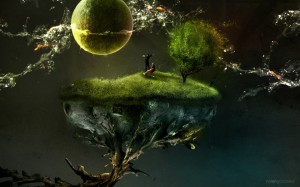 Not only was he set against himself, but he saw himself as a part of an uncaring mechanistic universe, devoid of purpose, intent, and certainly a universe that cared not a whit for the individual, but only for the species. Indeed, a strange world.
Not only was he set against himself, but he saw himself as a part of an uncaring mechanistic universe, devoid of purpose, intent, and certainly a universe that cared not a whit for the individual, but only for the species. Indeed, a strange world.
It was in many respects a new world, for it was the first one in which large portions of humanity believed that they were isolated from nature and God, and in which no grandeur was acknowledged as a characteristic of the soul. Indeed, for many people the idea of the soul itself became unfashionable, embarrassing, and out of date. Here I use the words “soul” and “psyche” synonymously. That psyche has been emerging more and more in whatever guise it is allowed to as it seeks to express its vitality, its purpose and exuberance, and as it seeks out new contexts in which to express a subjective reality that finally spills over the edges of sterile beliefs.
The psyche expresses itself through action, of course, but it carries behind it the thrust from which life springs, and it seeks the fulfillment of the individual — and it automatically attempts to produce a social climate or civilization that is productive and creative. It projects its desires outward onto the physical world, seeking through private experience and social contact to actualize its potentials, and in such a way that the potentials of others are also encouraged. It seeks to flesh out its dreams, and when these find no response in social life, it will nevertheless take personal expression in a kind of private religion of its own.
Give us a moment . . . Basically, religion is an activity through which man attempts to see the meaning of his life. It is a construction based on deep psychic knowledge. No matter what the name it might go by, it represents man’s connection with the universe.”
….”You can’t find your heroic self unless you trust the self you have,”….
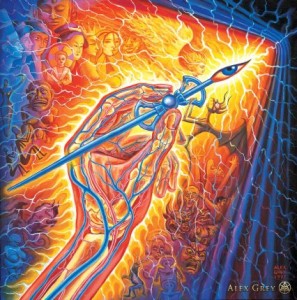 Again, you have been taught to believe that impulses are wrong, generally speaking, or at best that they represent messages from a nefarious subconscious, giving voice to dark moods and desires. For example: Many of you believe in the basis of Freudian psychology — that the son naturally wants to displace the father in his mother’s attentions, and that beneath the son’s love for his father, there rages the murderous intent to kill. Ridiculous idiocy!
Again, you have been taught to believe that impulses are wrong, generally speaking, or at best that they represent messages from a nefarious subconscious, giving voice to dark moods and desires. For example: Many of you believe in the basis of Freudian psychology — that the son naturally wants to displace the father in his mother’s attentions, and that beneath the son’s love for his father, there rages the murderous intent to kill. Ridiculous idiocy!
…..You cannot begin to have a true psychology, again, unless you see the living self in a greater context, with greater motives, purposes and meanings than you now assign to it, or for that matter than you assign to nature and its creatures. You have denied many impulses, or programmed others so that they are allowed expression in only certain forms of action. If any of you do still believe in the Freudian or Darwinian selves, then you will be leery about impulses to examine your own consciousness, afraid of what murderous debris might be uncovered. I am not speaking merely in hypothetical terms. —- Science, including psychology, by what it has said, and by what it has neglected to say, has come close to a declaration that life itself is meaningless. This is a direct contradiction of deep biological knowledge, to say nothing of spiritual truth. It denies the meaning of biological integrity. It denies man the practical use of those very elements that he needs as a biological creature: the feeling that he is at life’s center, that he can act safely in his environment, that he can trust himself, and that his being and his actions have meaning.
Impulses provide life’s guide to action. If you are taught that you cannot trust your impulses, then you are set against your very physical integrity. If you believe that your life has no meaning, then you will do anything to provide meaning, all the while acting like a mouse in one of science’s mazes — for your prime directive, so to speak, has been tampered with. I am trying to temper my statements here, but your psychology of the past 50 years has helped create insanities by trying to reduce the great individual thrust of life that lies within each person, to a generalized mass of chaotic impulses and chemicals — a mixture, again, of Freudian and Darwinian thought, misapplied. The most private agonies of the soul were assigned a more or less common source in man’s primitive “unconscious” drives.
The private unquelled thrusts toward creativity were seen as the unbalanced conglomeration of chemicals within a person’s most private being — a twist of perversity. Genius was seen as a mistake of chromosomes, or the fortunate result of a man’s hatred for his father. The meaning of life was reduced to the accidental nature of genes. Science thought in terms of averages and statistics, and each person was supposed to fit within those realms. To some extent, this also applies to religion in the same time period. Churches wanted sinners galore, but shied away from saints, or any extravagant behavior that did not speak of man’s duplicity. Suddenly people with paranoidal characteristics, as well as schizophrenics, emerged from the wallpaper of this slickly styled civilization.
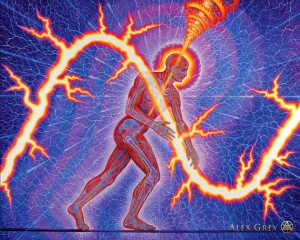 The characteristics of each were duly noted. A person who feels that life has no meaning, and that his or her life in particular has no meaning, would rather be pursued than ignored. Even the weight of guilt is better than no feeling at all. If the paranoid might feel that he [or she] is pursued, by the government or “ungodly powers,” then at least he feels that his life must be important: otherwise, why would others seek to destroy it? If voices tell him he is to be destroyed, then these at least are comforting voices, for they convince him that his life must have value.
The characteristics of each were duly noted. A person who feels that life has no meaning, and that his or her life in particular has no meaning, would rather be pursued than ignored. Even the weight of guilt is better than no feeling at all. If the paranoid might feel that he [or she] is pursued, by the government or “ungodly powers,” then at least he feels that his life must be important: otherwise, why would others seek to destroy it? If voices tell him he is to be destroyed, then these at least are comforting voices, for they convince him that his life must have value.
At the same time, the paranoid person can use his creative abilities in fantasies that seemingly boggle the minds of the sane — and those creative abilities have a meaning, for the fantasies, again, serve to reassure the paranoid of his worth. If in your terms he were sane, he could not use his creative abilities, for they are always connected with life’s meaning; and sane, the paranoid is convinced that life is meaningless. It did little good in the past for Freudian psychologists to listen to a person’s associations, while maintaining an objective air, or pretending that values did not exist. Often the person labeled schizophrenic is so frightened of his or her own energy, impulses, and feelings that these are fragmented, objectified, and seen to come from outside rather than from within.
….The term schizophrenic, with the authority of psychology, becomes a mass coverall in which the integrity of personal meaning is given a mass, generalized explanation. Those who are paranoid are, unfortunately, those who most firmly believe the worst idiocies of science and religion. The paranoid and the schizophrenic are trying to find meaning in a world they have been taught is meaningless, and their tendencies appear in lesser form throughout society.
Creativity is an in-built impetus in man, far more important than, say, what science calls the satisfaction of basic needs. In those terms, creativity is the most basic need of all. I am not speaking here of any obsessive need to find order — in which case, for example, a person might narrow his or her mental and physical environment — but of a powerful drive within the species for creativity, and for the fulfillment of values that are emotional and spiritual.”
Source: The Individual and the Nature of Mass Events
